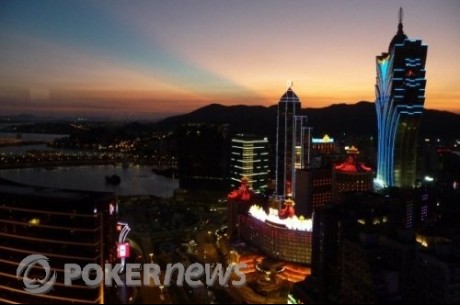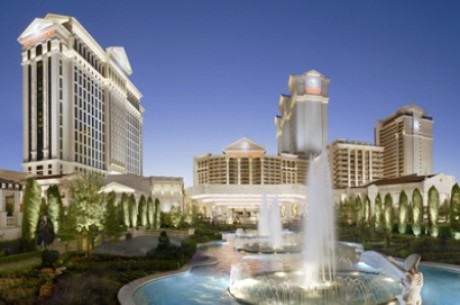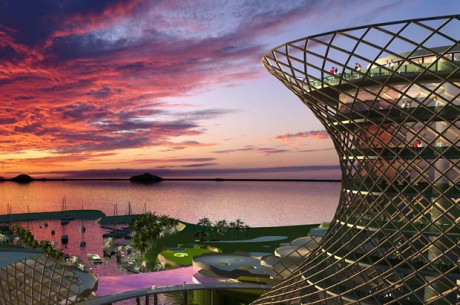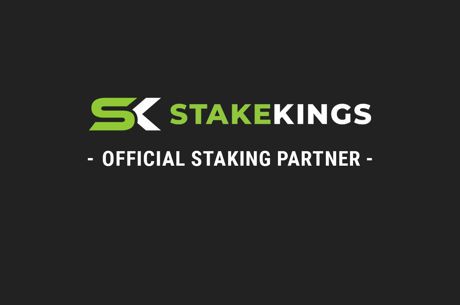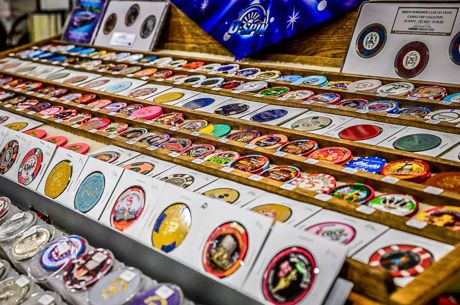Inside Gaming Real Estate Edition: Hooters for Sale, Hilton Renamed, and More
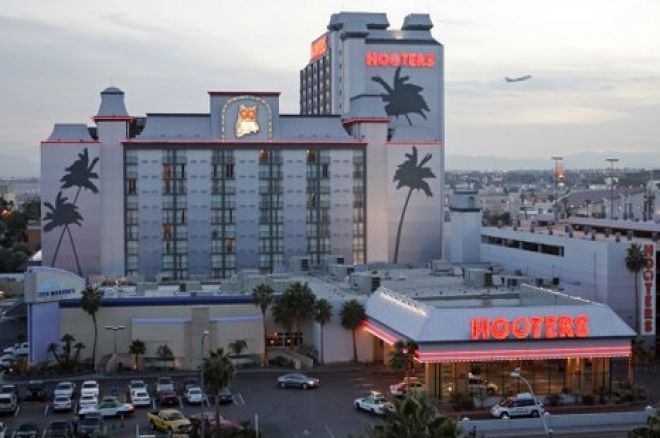
Where can you find gaming stories with more zeros than the Ivey/Laliberate Macau cash games? In the casino operations industry, of course. Lately, the Las Vegas market has produced more suicide kings than bankers or professors. This week, the owners of Hooters Las Vegas finally accepted that it's beyond saving and agreed to auction the property to the highest bidder. The bankrupt Hilton Las Vegas made public its new name — LVH-Las Vegas. Even if it weren't redundant, we'd be underwhelmed. And the company that owns the giant empty lot between the Trump and the Wynn said it's going to stay a dusty wasteland for the foreseeable future. We're sure there's good news to be had in Las Vegas. But this week you won't find much of it here.
Hooters Casino: The Ultimate Stocking Stuffer?
Love gambling, chicken wings, and well-endowed women? We have the ultimate Christmas list addition for you! Hooters Hotel and Casino in Las Vegas will be sold at auction according to a deal agreed to in U.S. Bankruptcy Court on Tuesday. For between $50 and $80 million, you could be the proud new owner of a 696-room property only a few blocks off of the Las Vegas Strip. OK, a 696-room property and a boatload of debt, but just ask Santa to pay that off next year.
Hooters' management tried for several months to hold off a foreclosure attempt by the property's largest debt creditor, Canyon Capital Reality Advisors. But after outside experts determined that no investors would be willing to sink more money into the project without a change in ownership, Hooters and Canyon Capital agreed to the auction plan. Canyon Capital holds debt officially listed at $176.6 million but says the casino is worth no more than $80 million.
"There is no question that no one out there will pay in excess of $175 million," said Hooters attorney Gerald Gordon. "But there are buyers prepared to step up for somewhat less."
Since Canyon Capital's subsidiary, Canpartners Realty Holding Company IV, bought the majority of Hooters' debt at 22 cents on the dollar six years ago, the investment firm appears willing to dispose of the casino for much less than the original value of the debt.
In a written statement for Canyon Capital published on Nov. 1, John Knott, an executive vice president of CB Richard Ellis, said a sale price of $70 million was "achievable" but cautioned that renovations costing as much as $50 million would be necessary to make Hooters competitive with the surrounding hotels that have rolled out major renovations in the past several years.
In the three months ending Oct. 31, Hooters lost $111,000 on net revenues of $11.3 million. The exact auction date and procedures have not yet been set, but the deadline for the auction's completion is currently Feb. 17.
For more information on the terms of the sale and all kinds of fun debt valuation discussions, read VegasInc.com and the Las Vegas Review-Journal.
Las Vegas Hilton Renamed LVH as Foreclosure Battle Continues
And you thought Paris had problems. After 40 years as the Las Vegas Hilton, the hotel and casino will change its name to the not-exactly-inspiring LVH-Las Vegas Hotel & Casino on Jan. 3. The resort's owner, Colony Resorts LVH Acquisitions LLC, made the name public in a Las Vegas advertising section published in the Los Angeles Times.
The property's franchise rights to the Hilton name expire at the start of the year. Hilton Worldwide decided not to renew the rights to attach the Hilton name to the bankrupt casino. According to a federal trademark application filed by Colony Resorts in September, the new name will be used for hotel, restaurant, gaming, and entertainment activities on the property.
Colony Resorts has its hands full with the property at the moment. In August, the company made public news that it had defaulted on a $252 million term loan from Goldman Sachs Mortgage Co. Now the Hilton's owners are contesting an attempt by Goldman to foreclose on the Hilton. In October, a judge gave Colony Resorts more time to fight Goldman's bid to forcibly replace the current management with receiver Ronald Paul Johnson. The next court date is set for Dec. 13. With all of the uncertainty about the location's future, Colony Resorts got Securities and Exchange Commission permission not to file a third-quarter financial report on time.
In a statement, Colony Resorts said, "Colony Resorts LVH Acquisitions LLC is not able to file its quarterly report…for the quarter ended Sept. 30, 2011. on or prior to Nov. 15, 2011, without unreasonable effort or expense due to the company's inability to determine the fair value of the company's assets."
The property formerly known as the Atlantic City Hilton Casino Resort, owned by Colony Capital LLC, already lost its right to use the Hilton name. The bankrupt casino is going by the name ACH as it searches for a buyer. In a strategy recently written about in the Press of Atlantic City, the heavily leveraged property is trying to stay open by transforming itself into a low-cost local casino.
Analysts are skeptical about the viability of the Las Vegas Hilton's new name. David Schwartz, director of UNLV's center for gaming research, told the Casino City Times, "If LVH-Las Vegas Hotel & Casino is the new name, it can't be anything but a placeholder. It's not a viable name for a property. The only options are to revert back to the Hilton name or you sell it to somebody that can invest in a real name change."
More Emptiness for the Strip as New Frontier Site Plans Fail
While the barren sandy lot between the Trump International, the Fashion Show Mall, and the Wynn Las Vegas already looked like it had been long forgotten, it's status as a dust bowl is now official. The former site of the flattened New Frontier casino was supposed to be the new location of a Las Vegas version of New York's Plaza Hotel. ButElad Group, the Israeli company that bought the land, made it clear that the project is dead, announcing on Monday that it had written off $500 million of its $1.24 billion investment.
Elad Group, which also owns the Plaza in New York, planned to build a $5.7 billion version of its East Coast gem, but the market crash intervened. Elad bought the New Frontier and the land under it in May 2007 from then owner Phil Ruffin for about $34 million an acre at the very peak of the land's value. Ruffin had paid $167 million for the entire New Frontier casino and the land less than 10 years earlier. Elad demolished the casino in Nov. 2007, and the land has been empty since.
Executives at Elad cited "developments in international capital markets" as the reason the company couldn't obtain financing for the project. The land is now valued at about half of what Elad paid. Now that Elad wrote down $500 million of its value, when the loans are up for renewal in six months, no one would be surprised to see the banks as proud owners of an empty lot on the Strip.
Steve Wynn offered to landscape the eyesore across from his flagship casino at his own expense several years ago and says he has been repeatedly approached by Elad to develop the site. But Wynn says he cannot determine the return on investment he would get from such a project and used the opportunity to engage in one of his favorite pastimes, railing against the economic policies of the U.S. government.
Wynn said that the land is "owned by two Israeli gents, that are friends of mine, that bought it at a very high price and are sort of in a difficult position now." But he does not want to use the land to build a new Strip resort because of the federal government's "insatiable appetite for money."
The Las Vegas Review-Journal puts it all in context.
Follow PokerNews on Twitter for up-to-the-minute news.
*Photo courtesy of the Las Vegas Sun

